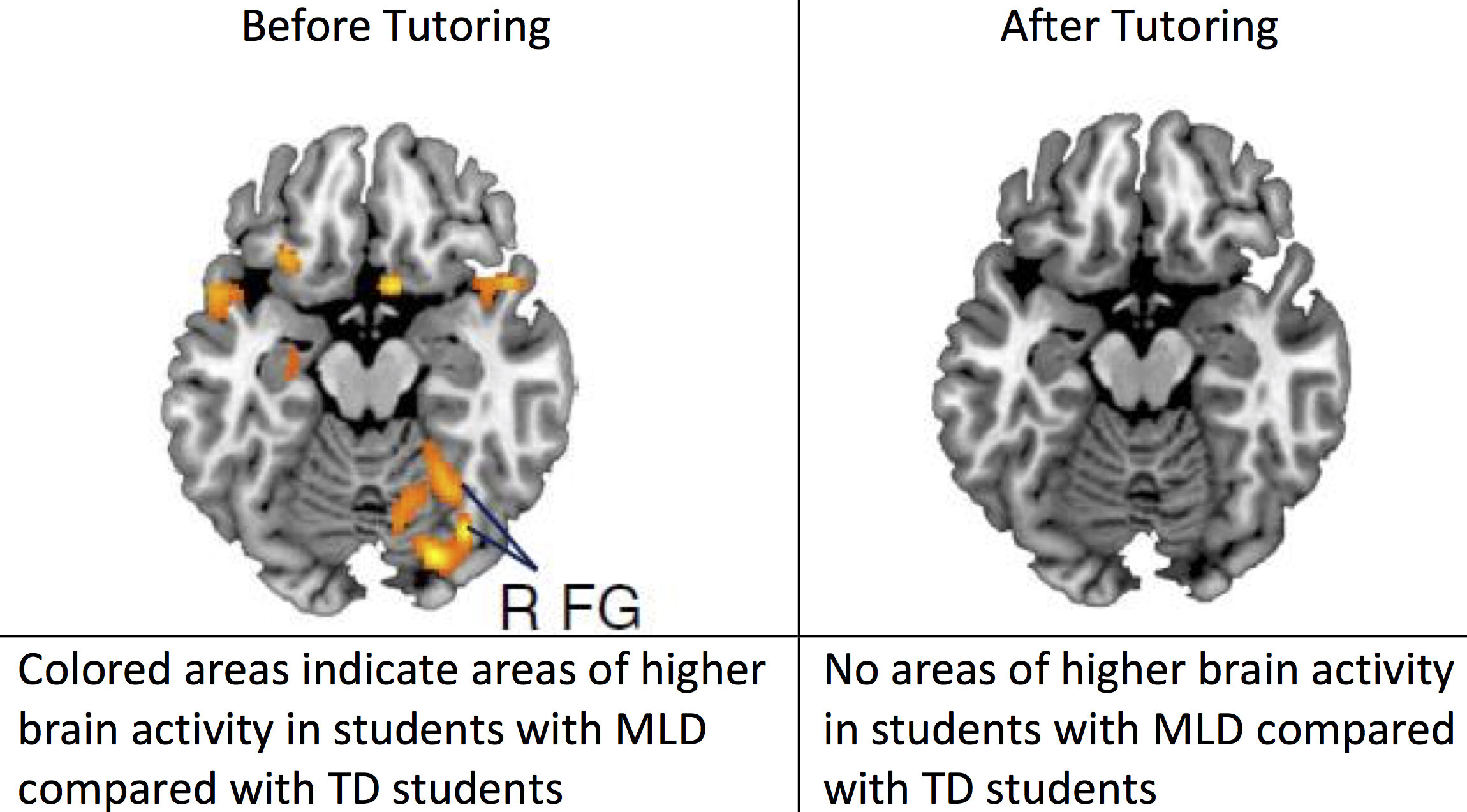Tutoring can help with thinking smarter, not harder
/When you learn math, you do better on math tests - makes sense, right? But how does learning math change how the brain responds to math problems? If students are struggling with math, how does their brain activity change when they take part in tutoring?
In order to study these questions, a team of scientists recruited 7-9 year-old students who showed Mathematical Learning Disabilities (MLD) and students who showed typical development (TD). They used two main tests: to see changes in math ability, they used a math test, and to measure changes in brain activity, they used a technique called functional Magnetic Resonance Imaging, or fMRI. fMRI uses a strong magnet to measure blood flow in the brain as a proxy for neural activity (active neurons require more oxygen from the blood). To see which areas of the brain were active during math problem solving, the scientists would ask the students to solve math problems while they were being scanned using fMRI and observe which brain areas had increased blood flow.
The researchers wanted to measure differences between the brain response before tutoring and the brain response after tutoring. Therefore, students received 8 weeks of one-on-one tutoring designed to help them with math concepts and quick recall of math facts. The researchers measured both groups (TD, MLD) using the math test and fMRI before and after tutoring. The experiment is outlined below:
Before Tutoring
As expected, before the tutoring, students with mathematical learning disabilities performed significantly worse on the math test than the TD students. But what about their brain activity? Interestingly, the TD students did not show increased activity in any part of the brain when compared to student with MLD. Instead, students with MLD showed greater brain activity in several brain regions than TD students, consistent with previous studies.
After Tutoring
The scientists had three hypotheses for how brain responses might change. If they compared brain responses of TD students and students with MLD after tutoring, they could observe (1) no differences in the brain activity, (2) differences in brain activity between TD and MLD students were the same as the differences observed before tutoring, or (3) different areas of the brain would become more active in students with MLD.
After the 8-week tutoring session, the students’ mathematical skills were tested again during a second fMRI scan. The MLD students improved their scores on the math tests to the point that they were indistinguishable from the TD students.
The fMRI data supported the first hypothesis - the brain responses of the students with MLD also matched that of TD students after the 8-week tutoring. When fMRI data before and after tutoring for students with MLD were compared, a decrease in activity was seen in the areas that had shown increased activity before.
What does this all mean?
This study underscores the idea that the human brain changes in response to tutoring and shows that aspects of math ability can be correlated with how the brain responds when solving math problems. It is important to keep in mind that the team of scientists did not observe an overall increase in ability in math, just the specific aspects that were addressed in the tutoring sessions.
There are still a few lingering questions. How long do these changes last? Is this improvement in math ability limited to only the type of math problems used in the study, or would there be an effect when solving other math problems?
Overall, this study displays powerful evidence that for students with math learning disabilities, math tutoring changes the way the brain responds to math problems. Previously, the students with MLD showed higher responses in more brain regions, but after tutoring their responses were similar to the TD students. You could say these changes show they are thinking smarter, not harder!
Check out the original article: Iuculano, T., Rosenberg-Lee, M., Richardson, J., Tenison, C., Fuchs, L., Supekar, K., & Menon, V. (2015). Cognitive tutoring induces widespread neuroplasticity and remediates brain function in children with mathematical learning disabilities. Nature communications, 6, 8453. https://www.nature.com/articles/ncomms9453
Edited by Arielle Keller


